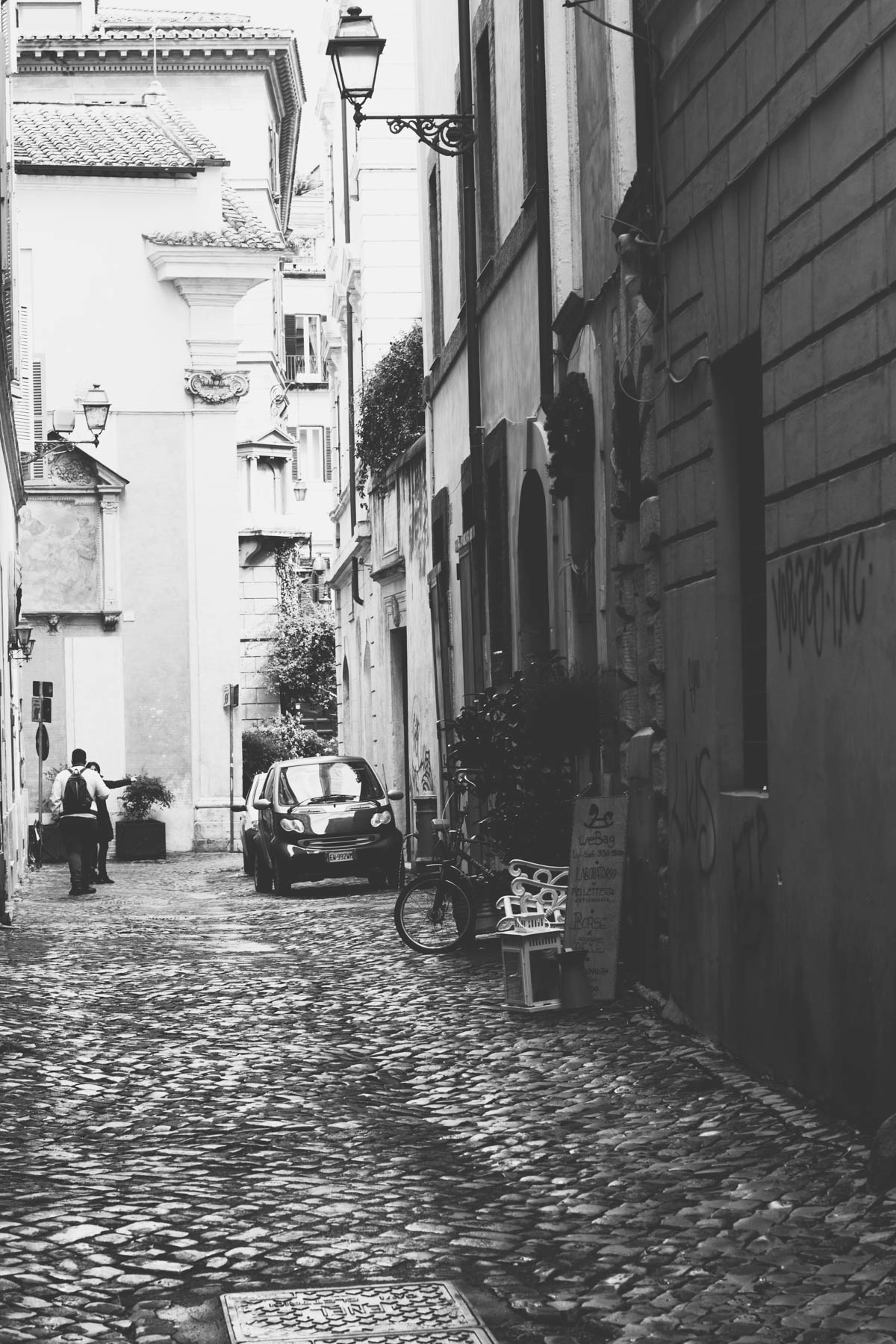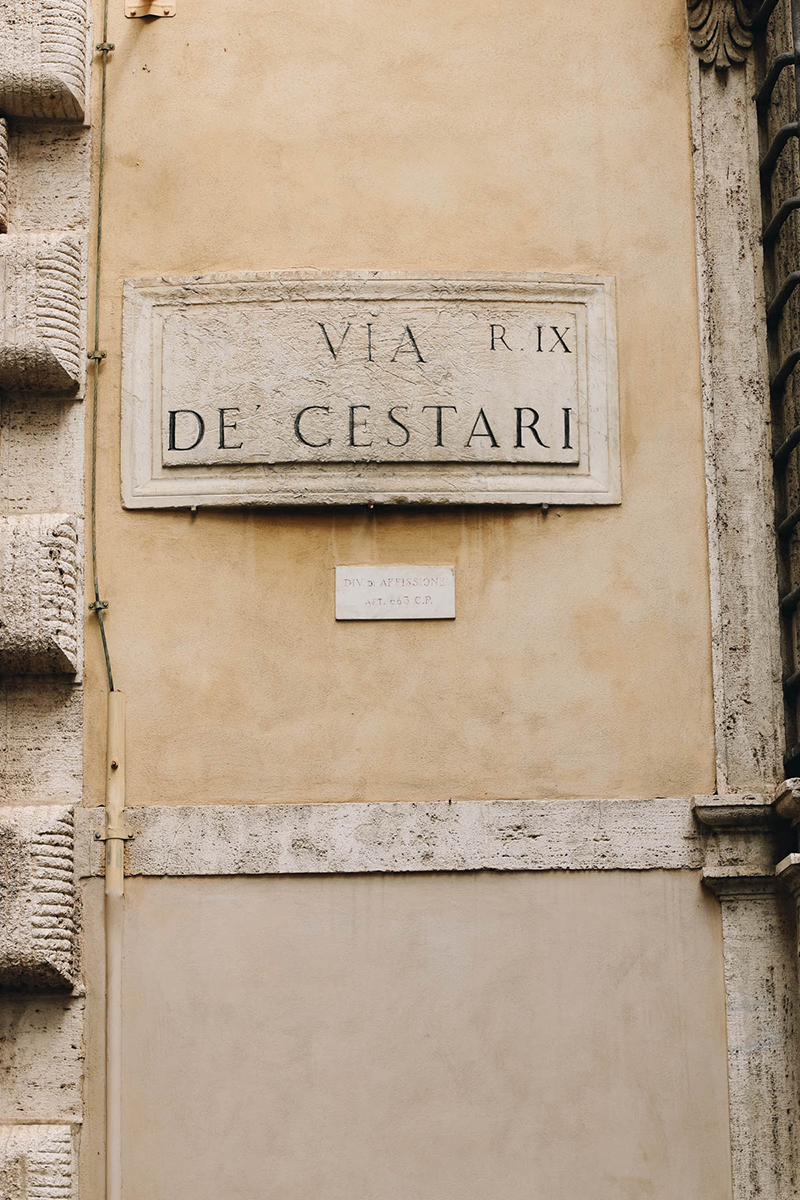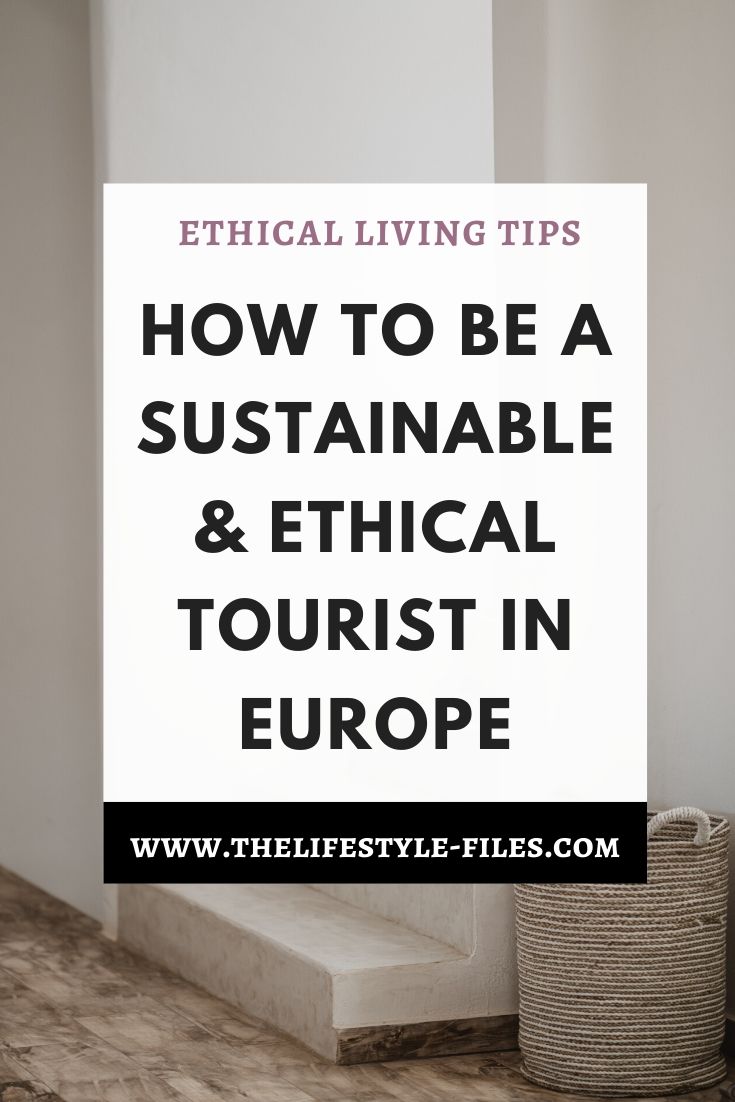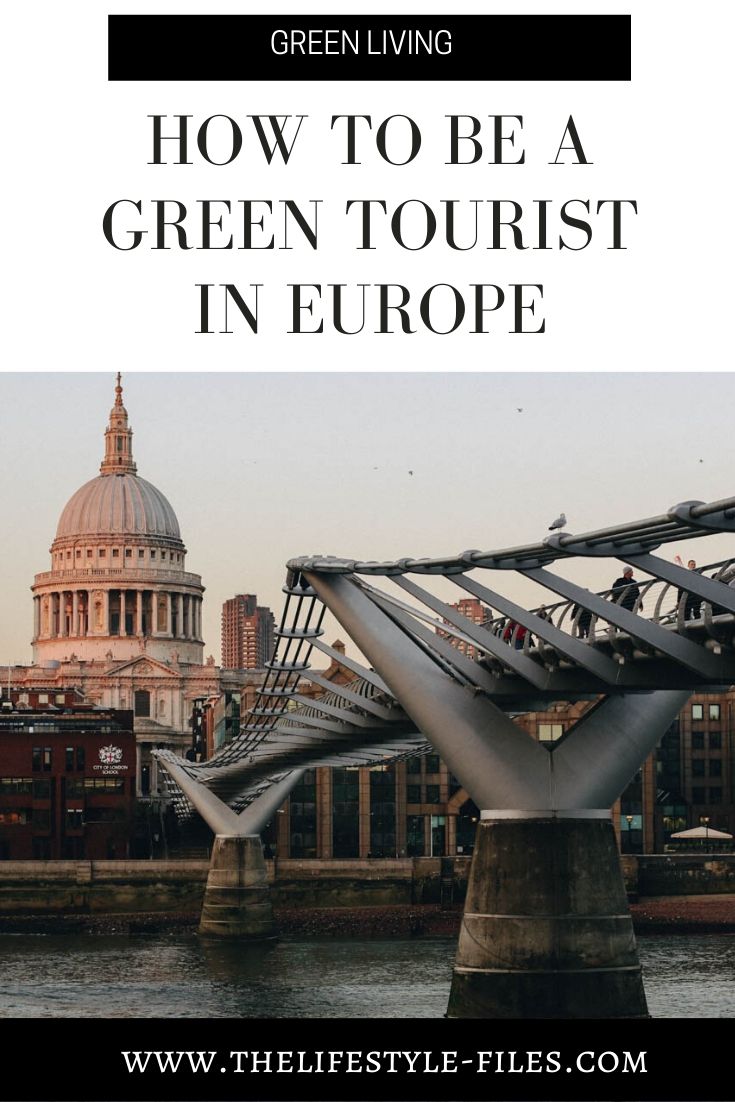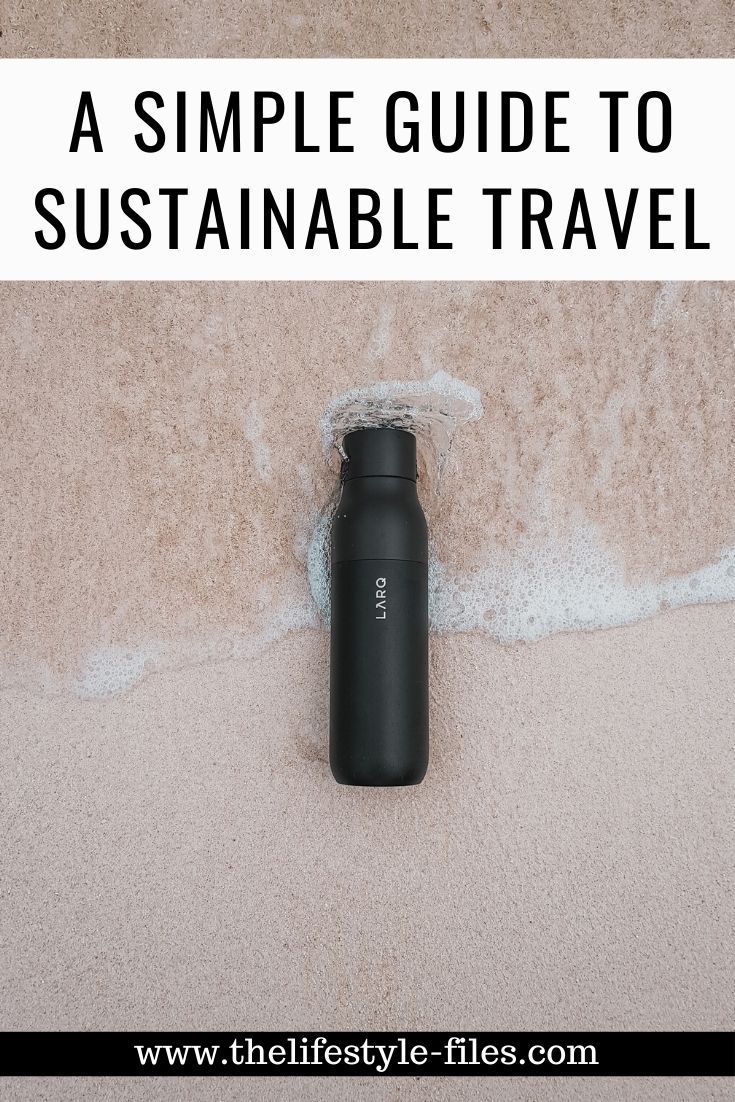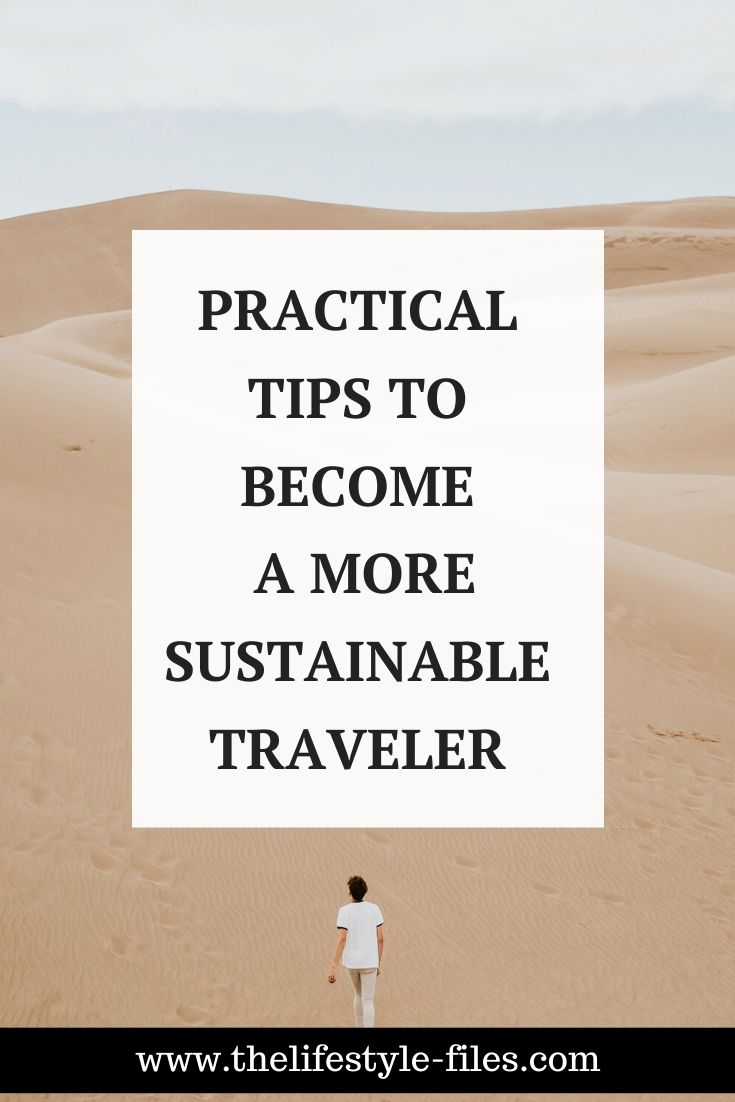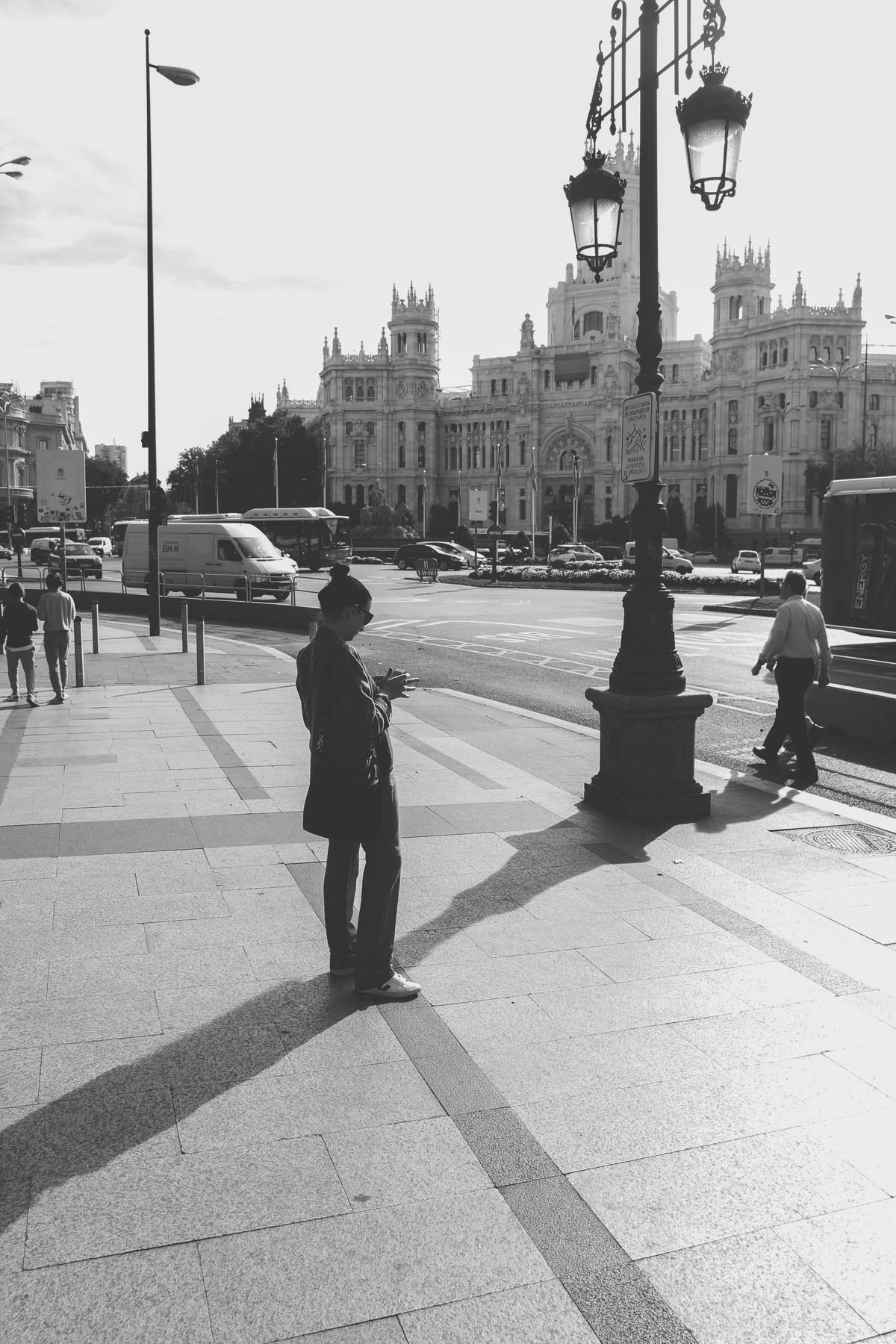
Take only photographs, leave only footprints – goes the popular eco-conscious travel motto.
While traveling is one of the most amazing things in the world, we cannot ignore the fact that it ’s not always wonderful for the environment or local people as well. In fact, the negative impact of tourism is a huge environmental and social issue we need to deal with – ASAP.
Like most environmental issues, the solution will require global cooperation between businesses, governments, tourism boards, agencies, tourists, residents, and so on. We all have work to do to support ethical, responsible, and sustainable tourism.
As we’re entering peak European traveling season, here are some tips on what we, individuals can do to be responsible – ethical and sustainable – tourists in Europe.
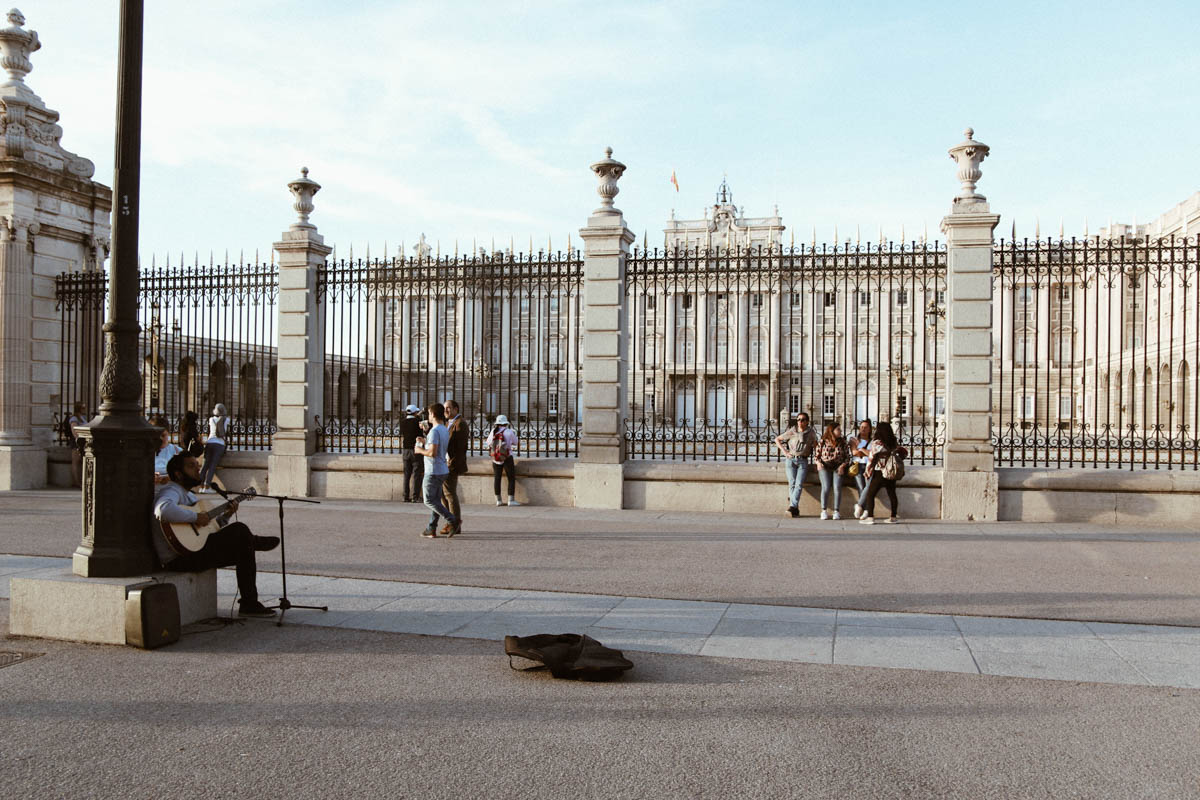
Travel
+ Avoid the high season
One of the biggest environmental and social issues in tourism right now is overtourism. Traveling has been on the rise for decades now, but it seems it has finally passed a critical threshold – some places are so overrun by tourists they have practically become unlivable. Overtourism is creating a lot of serious problems: overcrowding, huge traffic jams, housing shortages as hotels and Airbnbs take over residential neighborhoods thus pushing up rents or displacing locals, an increase in air pollution, more waste and litter, damaging fragile parts of nature or landmarks, and so on.
One way to avoid this is by traveling in off or shoulder season. Peak season in Europe is usually from mid-June to August or early September. Shoulder season is April/May and September/October, and off or low season is November to March, except for, of course, Christmas.
I’d really recommend traveling in the shoulder and low seasons in Europe: spring and fall weather is usually perfect, everything is much cheaper, especially during the winter, and you don’t have to physically fight people to get a peek at the Mona Lisa. I’ve been to London in February, Milan in March, Rome in April, Madrid and Paris in October, and they were much more enjoyable than in high seasons (photos are from our last shoulder season trips to Madrid and Rome).
+ Stay on the ground
I know the (sometimes shockingly) cheap flight tickets are attractive, but don’t rule out traveling by train or bus either. It’s comfortable, affordable (especially the bus), and, most importantly, a more environment-friendly option than flying. In fact, sometimes even a road trip by car is preferable to a shorter flight.
Use the Rome2Rio website to search for train or bus options. If you’re planning a multicounty trip, you can actually buy a Europe-wide rail pass as well (Eurail for non-European, Interrail for European residents).
If you take a flight, offset it (read more about carbon offsetting here). Some European airplane companies offer carbon offsetting options (I used Easyjet’s and Austria Airlines’ previously), but not all, especially not the budget ones, so in that case, I use either ClimateCare, Atmosfair, or a local forestry organization.
+ Off the beaten path
Travel experts say one of the solutions to overtourism could be traveling to lesser-known destinations. But here’s the thing about popular tourist spots. Usually, there’s a reason why they are overcrowded and that’s because they are truly unique sights. I don’t particularly like the snobbish attitude towards “touristy” things – if you’re dream is to visit Paris, then go visit Paris.
With that said, there is a particular appeal about visiting lesser-known places. They can often be equally stunning and you have the benefit of enjoying it without the crowds. For me, the ideal travel strategy is taking the best of both worlds. Visiting more popular places offseason, and exploring new ones in the summer. If you need some ideas for more niche places in Europe, these countries are currently on my travel wish list: Faroe Islands, Georgia, Armenia, Albania, Bosnia and Herzegovina, San Marino, Montenegro, Azores (Portugal).
+ Forget your Uber app
The sustainable way to explore a city? Walk, bike, and use public transport.
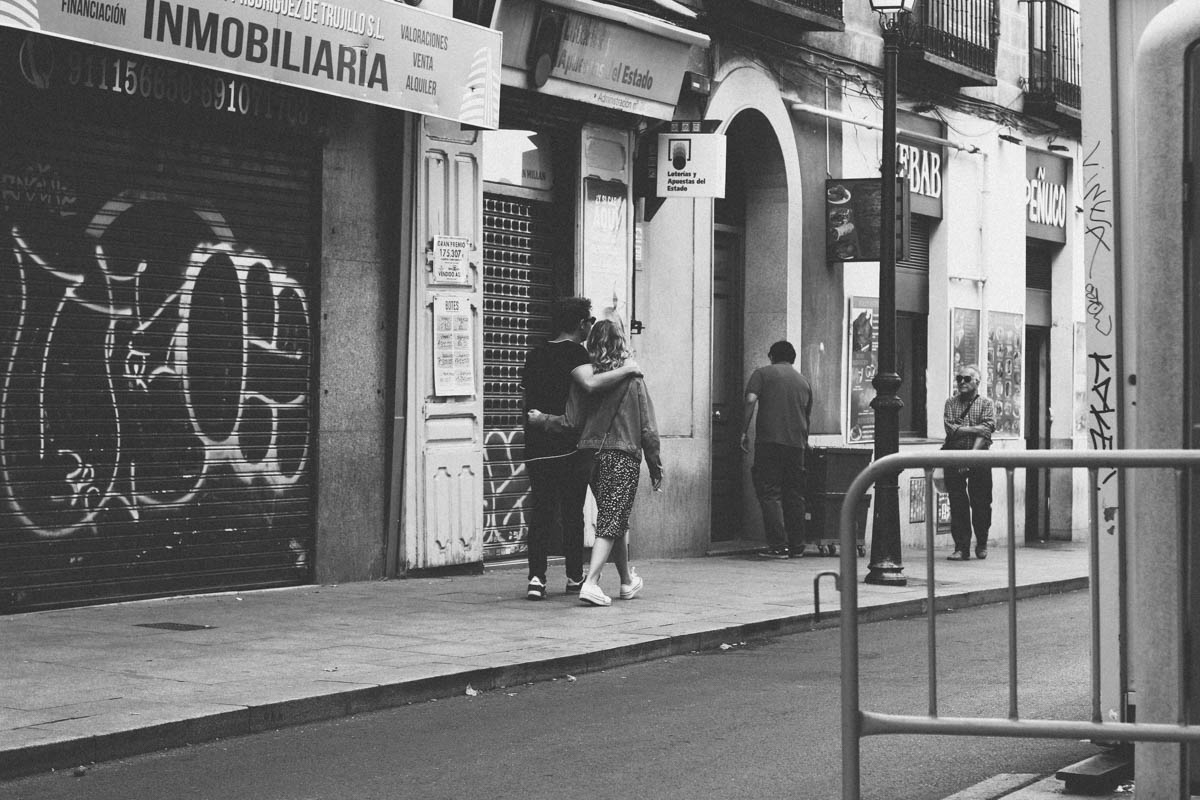
Pack
+ Pack light
Shrink your travel carbon footprint by packing light as heavy luggage requires more fuel during transport.
+ Make a zero waste travel kit
Reduce waste when you’re on the go by putting together a zero waste travel kit. Here are some tips.
Stay
+ Find an ethical and eco-friendly accommodation
The environment-friendly travel accommodation should be Airbnb, right?
Not necessarily.
While the original Airbnb idea was fairly positive in that it wanted to offer authentic, more local living experiences for tourists while also enabling local hosts for some side-income, the current reality is not that romantic anymore. Many cities are trying to regulate this industry, as the Airbnb movement has played a huge role in the exacerbation of local housing shortages. A lot of homeowners realized that short-term rent is more lucrative, and this has a direct impact on housing. Locals cannot afford the higher rents anymore and complete residential areas are transforming into tourism hotspots. Also, sometimes it’s not even the regular guy that gets the income – more and more companies are buying up flats just to be used for short rentals. There has been a lot of citizen protests recently in Barcelona, Amsterdam, Madrid, in Lisbon as well, and as a response, governments passed some regulations to better protect cities and residents.
Of course, the same problems are true for big hotel chains as well, in fact, to a much bigger degree.
So, if basically all places are problematic, where should we stay?
Personally, I like mixing the options. In some places, I use Airbnb – trying to rent from individual owners and choosing places that are not in the middle of old town districts. Sometimes I choose a hotel, but always a smaller, boutique one. There are actually really cool eco-conscious hotels as well, like this hotel with zero energy balance in Vienna, this contemporary eco-hotel in Milan, or this eco-hostel in Amsterdam. Outside the cities? I prefer local B&Bs and farm hotels (like the agriturismo places in Italy). You can also search for eco-friendly accommodations on Ecobnb or Green Pearls.
If you’re more adventurous, try couchsurfing, house-sitting, or home swapping.
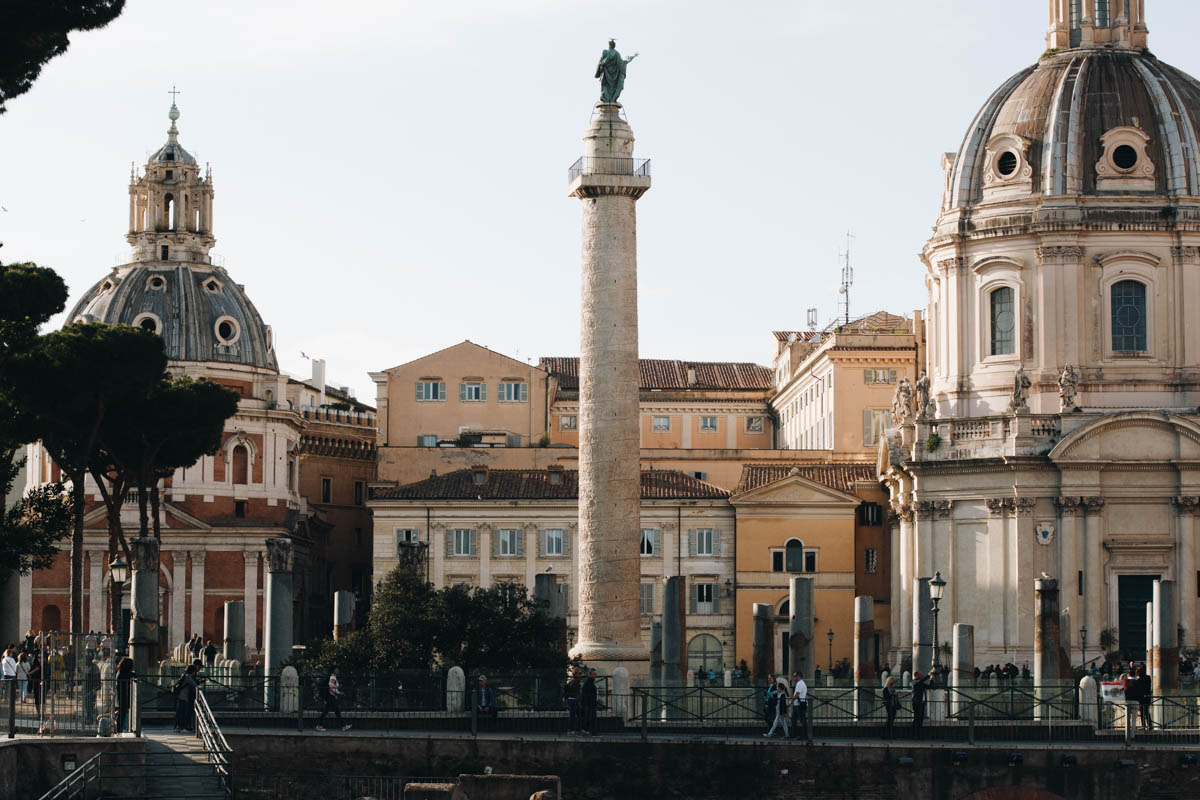
Eat
+ Be a part of the Slow Food Movement
Before slow living, slow travel, slow design, there was slow food. The movement that started it all was founded by Carlo Petrini in Italy in the 1980s to preserve traditional and regional culinary traditions, promote local small businesses and support sustainable food. Try the following tips to adopt and support the slow food approach.
+ Eat local and seasonal
Avoid chain restaurants and opt for local places. Try special local dishes and research what’s in season at the time. Eating seasonally and locally is eco-friendly and has a huge positive impact on the local economy.
+ Buy authentic and protected local food products
Because food fraud is so widespread globally, the EU tries to protect local gastronomy traditions and specialties with labeling regulations. Look for the following abbreviations on the labels to know you’re truly supporting local products: PDO (Protected designation of origin), PGI (protected geographical indication (PGI), TSG (traditional speciality guaranteed).
+ Visit a local market
Visiting a local market is one of my favorite things to do in a new place – especially early in the morning. Buying directly from farmers is sustainable, plus it’s such a fun way to get a taste of local living.
+ Eat at farm-to-table restaurants
Try farm-to-table restaurants, which serve food acquired directly from the producers. Find some restaurant recommendations here.
+ Pay attention to food waste even when you travel
Food waste is a serious environmental issue (read more about it here), we waste millions of tons of food each year. While it’s not as easy to totally avoid food waste when we travel (most of us probably won’t carry around a food container or leftover breakfast food all day), we should still be mindful. At least order smaller amounts and share dishes with your travel companion.
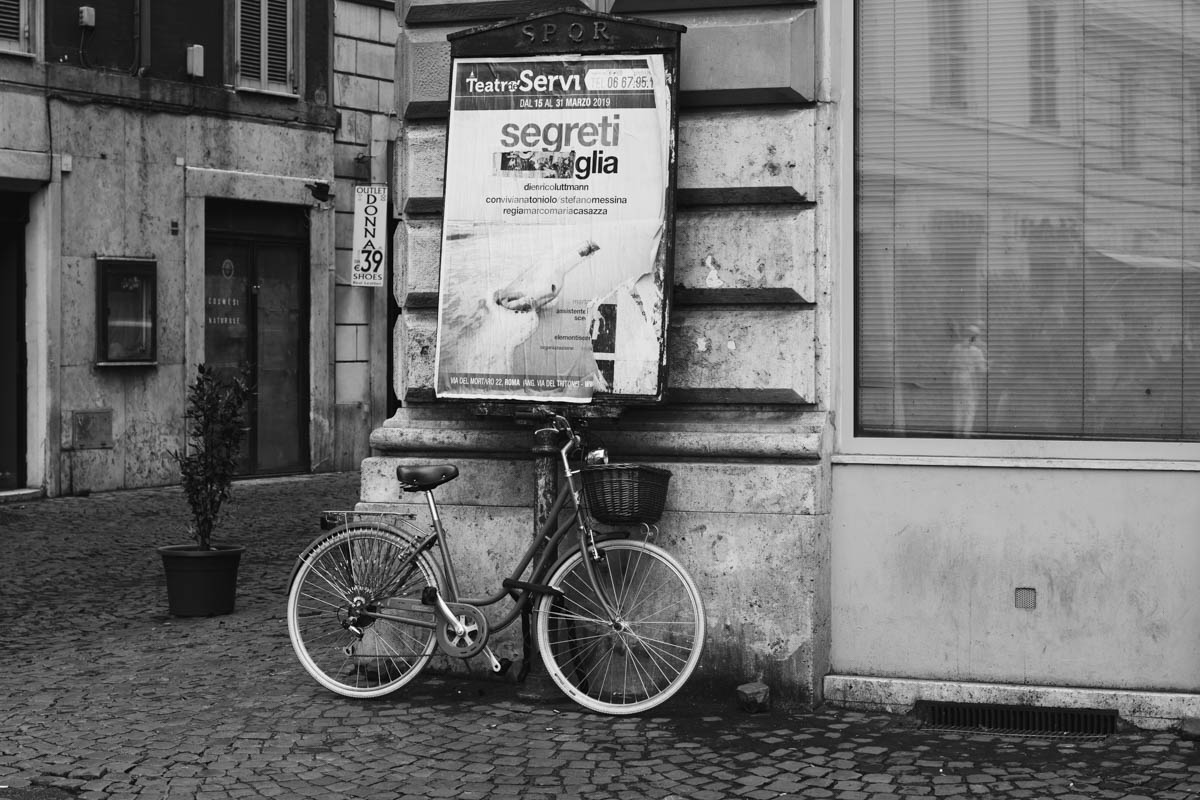
Do (and don’t)
+ Learn about the culture
Respect the host country and locals by learning about their history and culture as much as you can. Besides researching key facts, interesting stories, cultural stuff, I always try to read some books by an author from that country as well – you can learn a lot about a nation that way as well.
+ Go on local-led walking tours
Learn about a new place and support sustainable tourism by joining local-led walking tours. These tours often take tourists off the beaten paths, introducing them to secret parts and stories of a place, so you’re in for a unique experience.
Alternatively, there are some websites and apps where you can get itineraries put together by locals and hidden gem recommendations – check Atlas Obscura, Dorsia, Like a local.
+ Buy souvenirs from local independent businesses
I always make a list of local concept, design, and independent fashion stores before a trip, and get “souvenirs” from there or simply buy local food and delicacies.
+ Don’t go on cruises
Those big, multi-day, multi-country cruises are horrible for the environment. They produce serious CO2 emissions and can damage fragile water ecosystems. Also, I have first-hand experience of how they damage local living. Budapest is a popular stop for Danube cruises, and while the city is divided about many things, we’re definitely united in how much we hate them. They pollute the water, take the best ports, and ruin the city views. Sometimes the Danube looks like a highway at rush hour, it’s so overcrowded by cruises and ships.
+ Don’t participate in animal tourist attractions
Most people associate problematic animal tourist attractions with exotic places and activities, like elephant riding, wildlife hunting, or tiger selfies. But animal abuse issues occur in Europe as well. Horse-drawn carriages, horse racing, the infamous bullfights and bull runs in Spain, circuses, donkey rides – there are a lot of troubling practices in Europe we should be aware of.
+ Don’t leave behind waste
Probably no need to overexplain this. Recycling and waste management is rather efficient in Europe, so inquire about the local waste disposal options.
How do you travel sustainably?


